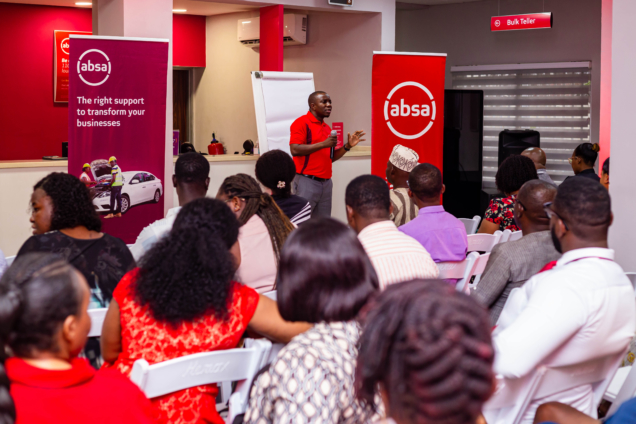Absa Bank has implored small and medium-scale enterprises (SMEs) to adjust their operations and prioritise liquidity to survive the current economic challenges.
The country has made good progress in restructuring its domestic debts under an exchange programme that was concluded earlier this month. Negotiations for an IMF bailout programme are also underway.
However, until that is concluded, the economy continues to face challenges, evident in high inflation, a weak exchange regime and high-interest rates – all unfavourable to businesses.
At an engagement session organised for its SME clients in Accra, Executive Director for Retail and Business Banking at Absa Bank, Kobla Nyaletey, said “Businesses need to survive the pre-IMF period and re-set their operations to thrive during the next phase.
"Cost containment, a no-frills approach to operations and a focus on getting cash into their businesses early, will be key.”
“Liquidity is king in volatile times. Businesses that generate frequent cash, have low receivables and diversify their business models from reliance on big-ticket contracts, will survive and begin to thrive when the economic challenges recede.”
The SME clinic, attended by over 200 clients, was under the theme “Survive and Thrive: tactics for uncertain times.”
It was also the first in-person SME engagement for the bank’s customers since the COVID-19 pandemic.
In her opening remarks, the Head of SME Banking and Partnerships at Absa Bank, Audrey Abakah reiterated the bank’s commitment to creating a learning platform for SMEs to build capacity and enhance their knowledge in financial management.
She advised participants also to leverage customer service experience to transform their clients into net promoters for free.
As part of the engagement, the SME businesses were taken through a series of practical sessions, including liquidity management, cost line management, revenue generation and utilisation of credit lines.
The Absa SME Clinic was created to assist SMEs in gaining access to the Bank's specialised capacity-building programme, which aims to inform and assist small businesses to operate strong and sustainable enterprises. It also provides a platform for direct communication between customers and the Bank.
Latest Stories
-
Queenmother calls on President-elect Mahama to appoint more women in his government
53 minutes -
Atletico Madrid beat Barcelona to go top of La Liga
1 hour -
Usyk breaks Fury’s heart with points win in rematch
1 hour -
Ghana-Russia Centre to run Russian language courses in Ghana
7 hours -
The Hidden Costs of Hunger: How food insecurity undermines mental and physical health in the U.S.
7 hours -
18plus4NDC marks 3rd anniversary with victory celebration in Accra
10 hours -
CREMA workshop highlights collaborative efforts to sustain Akata Lagoon
10 hours -
2024/25 Ghana League: Heart of Lions remain top with win over Basake Holy Stars
11 hours -
Black Queens: Nora Hauptle shares cryptic WAFCON preparation message amid future uncertainty
11 hours -
Re-declaration of parliamentary results affront to our democracy – Joyce Bawah
12 hours -
GPL 2024/25: Vision FC score late to deny Young Apostles third home win
12 hours -
Enhancing community initiatives for coastal resilience: Insights from Keta Lagoon Complex Ramsar Site Workshop
12 hours -
Family Health University College earns a Presidential Charter
12 hours -
GPL 2024/25: Bibiani GoldStars beat Nsoatreman to keep title race alive
12 hours -
GPL 2024/25 Bechem United keep title hopes alive with narrow win over FC Samartex
12 hours

